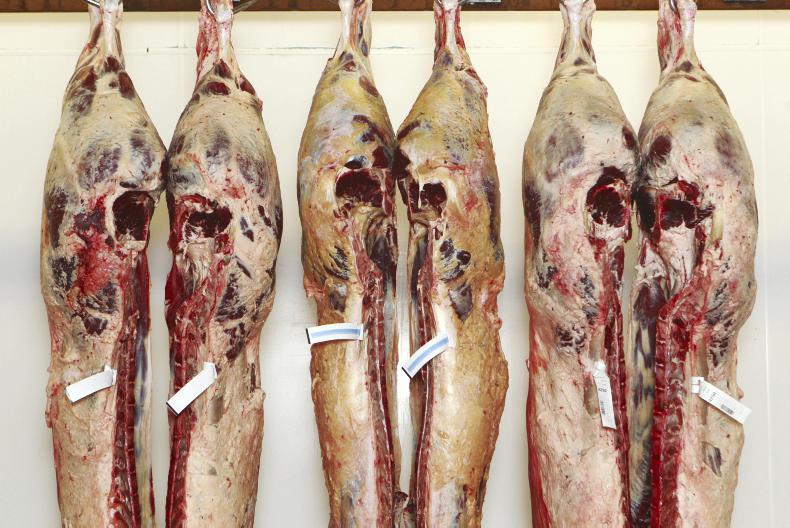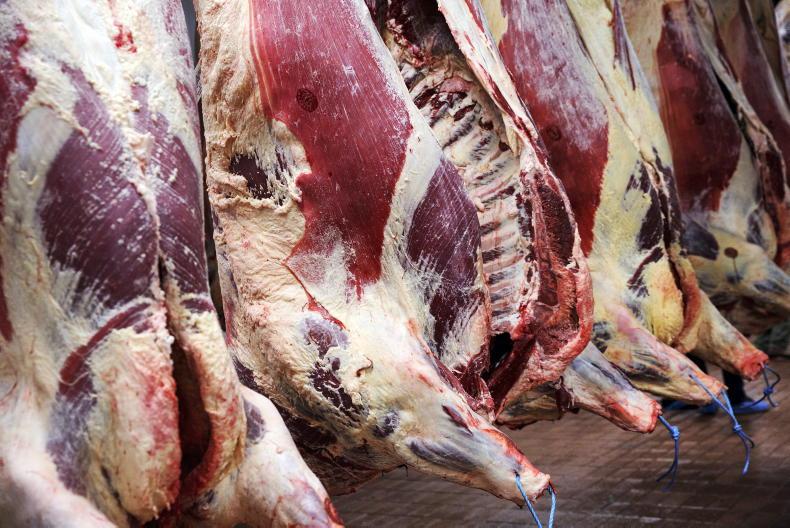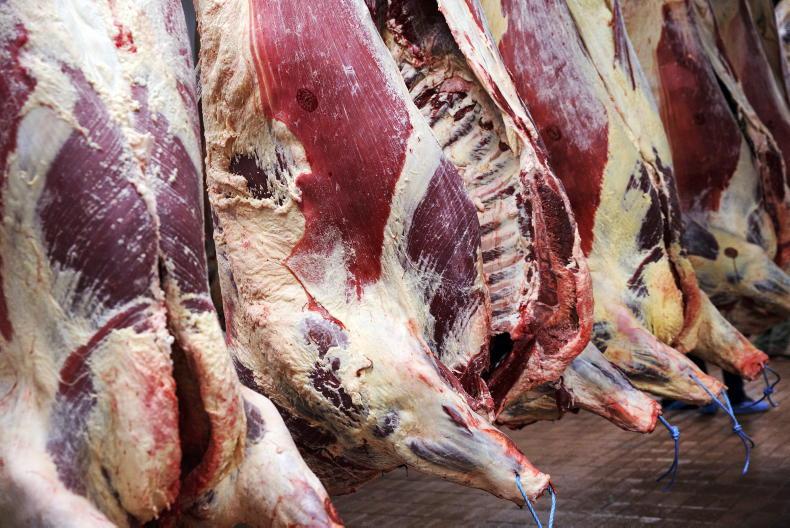Factories appear to be a little more cautious in their approach to buying cattle next week.
As things stand, €3.80/kg is a little harder to get for next week, with factories trying to pull back quotes by 5c/kg to €3.75/kg for heifers and €3.70/kg for bullocks.
There have been cattle bought at €3.80/kg and, at this stage, a lot of next week’s deals have been completed at this price.
With a shortage in supply of finished cattle, some of the farmers I spoke to on Friday are happy to sit it out if not getting €3.80/kg.
Bull prices
Bulls are also at a similar price, with €3.70/kg for R grading bulls and €3.80/kg for U grading bulls being quoted.
There appears to be a little less appetite for cows, with some factories dropping quotes by 5c/kg.
Good R grading cows are still in demand and getting quoted €3.30/kg.
Plainer O grading cows are back at €3/kg, with P grading cows around €2.90/kg.
Last week's kill
Last week’s kill was up 1,309 head and with many factories operating on a six-day kill this week, this week’s kill is expected to increase further.
At the moment, most factories are killing three days next week (Monday, Tuesday and Wednesday), with some killing two days due to COVID issues and boning hall capacity.
Factories have also plans to kill three days the following week (28-30 December).
All eyes will be on Brussels and over the weekend to see whether any progress has been made on a free trade deal with the UK.
Factories are also keeping a close eye on developments at Folkstone at the entrance to the Channel Tunnel.
Long tailbacks are currently being seen, with miles of lorries waiting to enter the tunnel.
With Irish factories currently using the UK landbridge, we can expect that Irish product has been caught up in the delays.
However, the likelihood of this affecting processing capacity or price here is slim.
Similar tailbacks were seen in Holyhead on Thursday as British exporters pushed product to Ireland in advance of 31 December.
Last week, Meat Industry Ireland expressed concerns that red tape and inspections going through the UK could double transport times for beef to get to the European market.
Shipping capacity out of Rosslare to Cherbourg has also been raised as a concern about getting product quickly to Europe.
For the last six weeks, Irish factories have been busy stockpiling beef in the UK to avoid tariffs in the event of a no deal.
The news that southern cattle will continue to get unfettered access to the NI market for further feeding or slaughter is a welcome development.
Over 60,000 cattle have been exported to NI so far this year, almost double that of the same 2019 figure. Northern customers have had an important presence in marts in recent weeks, especially in the west of Ireland.










SHARING OPTIONS